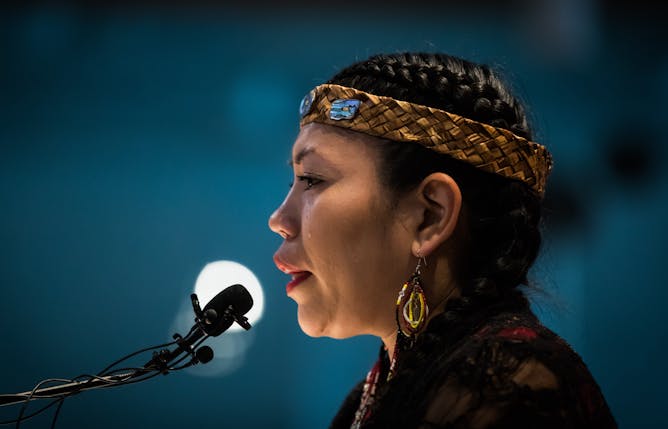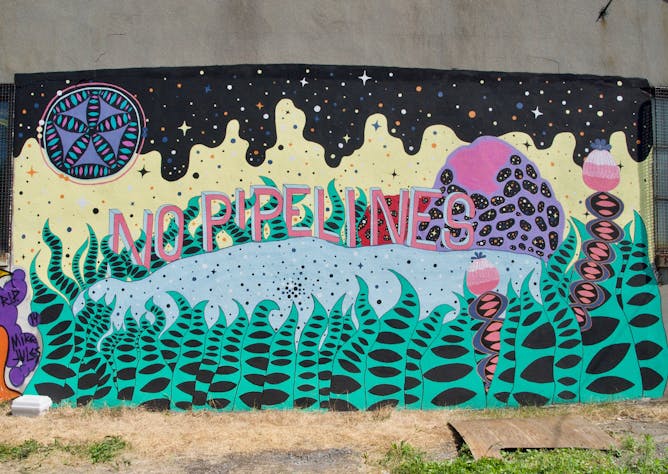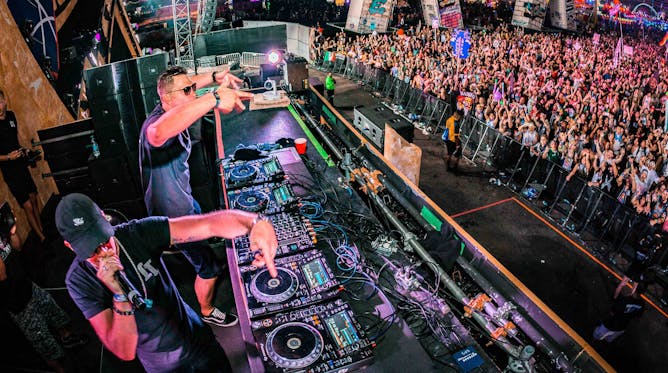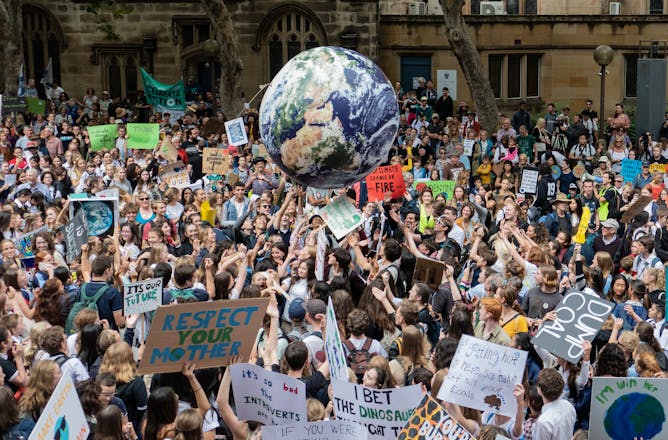|
One of the most controversial outcomes from the recommendations of the National Inquiry into Missing and Murdered Indigenous Women and Girls was the use of the word “genocide” to describe the ongoing violence these women face. Today in The Conversation Canada, Andrew Woolford of the University of Manitoba, a professor of sociology and criminology and former president of the International Association of Genocide Scholars, explains how the MMIWG report poses new challenges to the laws of genocide.“These questions are necessary because the history of settler colonialism in Canada includes a variety of efforts to remove, assimilate, starve
and erase Indigenous nations,” he writes.
One of the joys of urban settings is the growing trend of different forms of street art. Anna Augusto Rodrigues of Trent University explains how street art promotes public dialogue on social justice issues and can lead to opportunities for learning outside of formal schooling.
Christine Van Winkle of the University of Manitoba has been researching how people use their phones at summertime festivals and she has some common sense advice for all of us: phones can take away from our enjoyment of what should be a fun experience.
And finally…The Guardian newspaper recently updated its style guide to urge its journalists to stop using the term “climate change” and instead use “climate emergency, crisis or breakdown.” Madhur Anand of the Global Ecological Change and Sustainability Laboratory and the University of Guelph applauds the change and says language is important when getting the public to understand the seriousness of global warming.
Regards,
|

Lorelei Williams, whose cousin was murdered by serial killer Robert Pickton and whose aunt went missing in 1978, sheds tears while responding to the report on the National Inquiry into Missing and Murdered Indigenous Women and Girls.
THE CANADIAN PRESS/Darryl Dyck
Andrew Woolford, University of Manitoba
Understanding genocide as a process can help people grapple with the ongoing threat faced by Indigenous people in Canada, as named in the report into missing and murdered Indigenous women and girls.
|

Street art can complement formal classroom learning. Here, ‘No more pipelines’ mural by the artist Swarm in Montréal.
(Anna Augosto Rodrigues)
Anna Augusto Rodrigues, Trent University
Street art promotes public dialogue on social justice issues and can lead to opportunities for learning outside of formal schooling.
|

Consider running wild and free at this summer’s music festivals – without your phone.
Matty Adame/ Unsplash
Christine Van Winkle, University of Manitoba
The habit of using our phones while at a summer music festival can negatively impact our experiences.
|

Tens of thousands of students march in Sydney, Australia in March 2019 to demand action on climate change.
(Shutterstock)
Madhur Anand, University of Guelph
Can new language change the way the public and politicians perceive the hazards of the Earth's changing climate?
|

La retraite flexible ou graduelle est de plus en plus populaire. Les motivations sont nombreuses pour rester sur le marché de l'emploi mais un fait demeure: l'État ne s'est pas ajusté à cette nouvelle réalité.
Shutterstock
Diane-Gabrielle Tremblay, Université TÉLUQ
La retraite graduelle est de plus en plus populaire. Les motivations sont nombreuses pour rester sur le marché de l'emploi mais un fait demeure: l'État ne s'est pas ajusté à cette nouvelle réalité.
|
Environment + Energy
|
-
Pierre Victoria, Sciences Po Rennes
The dangers of outdoor air pollution are now well known, but those related to the air we breathe at homes and at work are much less so, according to an international study.
|
|
Health + Medicine
|
-
Bronwyn Orr, University of Sydney
We know that failing to provide basic care like food and shelter is cruel, but we often overlook how disregarding the mental lives of our pets can also negatively impact their welfare.
|
|
Science + Technology
|
-
Steven Bender, Texas A&M University
You are tired. Would nine more minutes really hurt? Is hitting the snooze button a good idea? Should you just get out of bed? Or is snoozing a sign of a more serious medical issue?
|
|